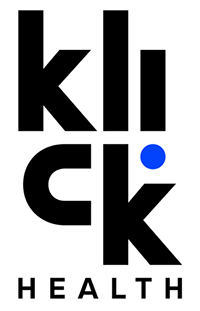Hispanics Prioritize Health Tech and Value Health Advertising More Despite Facing Greater Health Inequities
April 6, 2022

A new research study by Klick Health and ThinkNow reveals significant cultural differences in the way Hispanics deal with their health – reinforcing the need for cross-cultural marketing programs by healthcare companies targeting this growing population segment.
Among the findings uncovered in “Exploring Hispanic Health Attitudes & Behaviors for More Informed Cross-Cultural Marketing,” a first-of-its kind study published in the April issue of the Journal of Cultural Marketing Strategy, Hispanics:
Place higher value on health technology, including wearables (such as Apple Watches and Fitbits), fitness apps, and vital monitoring devices (such as glucose meters) than those in other demographic groups;
- Pay far more attention to healthcare advertising than their non-Hispanic white counterparts; and
- Seek treatment from community clinics more often than doctors’ offices or urgent care centers.
“Health marketing needs to better serve the needs of the Hispanic community,” said Amy Gómez, Ph.D., Senior Vice President, Diversity Strategy at Klick Health. “Our research provides life sciences companies with the insights needed to develop impactful cross-cultural communications, foster greater health equity for this under-resourced population, and help healthcare marketers catch up to their consumer marketing counterparts by better addressing the ‘New Majority America,’ especially as April is National Minority Health Month.”
Hispanics Love Health Technology
The study revealed that 59% of Hispanics are very comfortable using technology-based products and services (versus just 50% of non-Hispanics) and gravitate toward using patient portals, digital prescription refills, fitness apps, and wearables – despite previous 2016 research citing doctors being less likely to prescribe health technology like vital monitoring devices to Hispanics1. What’s more, 56% of Hispanics said that staying up-to-date with technology was more important to them (vs. 44%) and over half believe that technology can help them live a healthier life (51% vs. 43%).
Additional findings indicated that Hispanics also:
- Access Community Clinics More Often Than Urgent Care: Hispanics are less likely to visit urgent care facilities (36% vs. 61%) or a doctor’s office (52% vs. 61%), and more likely to visit community clinics (28% vs. 20%)
- Shop at Specialty Stores: Hispanics are more likely to shop at Hispanic grocery stores for health products, and less likely to shop at mass retailers, online retailers, or dollar stores
- Have Happy, Healthy Habits: Hispanics are more likely to believe in the health benefits of ‘healthy eating habits’ (29% vs. 20%) and a ‘healthy lifestyle’ (30% vs. 23%.) They also tend to be happier with their current health routines (42% vs. 36%)
- Are Responsive to Marketing: Hispanics pay more attention to health-related advertising (38% vs. 31%)
- Have Changing Mental Health Attitudes: Millennial and Gen Z Hispanics seem to be breaking down long-standing stigmas around discussing and treating mental health. One participant shared, “At first I felt like I needed [my family’s] approval and understanding of me getting help. And then I realized, no, I need to do this for me.”
“Beyond presenting healthcare marketers with an abundance of new opportunities for reaching Hispanics, we believe these findings are a step in the right direction to supporting more equitable healthcare practices, a cause that we are deeply committed to,” said Keri Hettel, Senior Vice President, Intelligence at Klick Health.






























